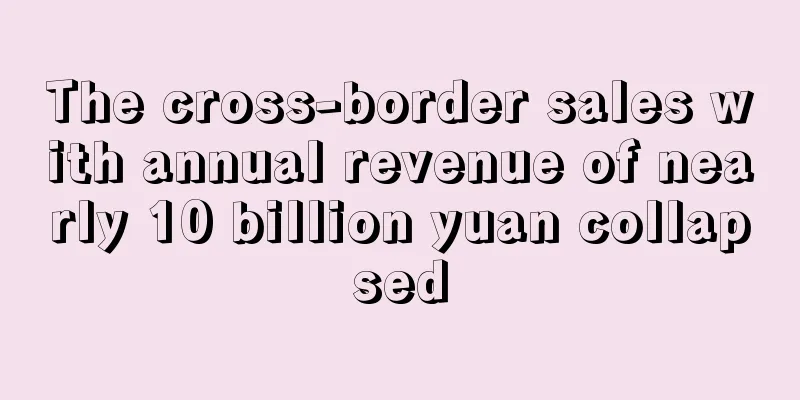France passes carbon emission score labeling bill to be piloted on clothing products

|
This week, the French National Assembly launched a three-day heated debate on the amendment of the Climate Act, and finally passed the amendment bill to "add a 'carbon emission score' label to products" with a vote score of 93:28.
The measure was proposed mainly to clearly inform consumers of the carbon emissions generated by relevant products during the raw material production, product manufacturing, packaging and transportation process, and also to urge brands and manufacturers to take measures that comply with national environmental protection requirements.
The measure of adding a "CO2 score" label to products is not mandatory at present, and will first be piloted in the clothing and textile industries. According to a set of data released by the French Ecological Transition Agency ( L'Agence de la Transition écologique), the fashion industry is the second largest polluter in the world, consuming an average of 2,700 liters of water to produce a T-shirt and 11,000 liters of water to produce a pair of jeans.
It is said that the trial period of the "Carbon Emission Score" label will not exceed five years. If the trial results show that the label is effective, it will be considered to be promoted to industries such as homes, hotels, and electrical appliances in the future.
The implementation of this measure is expected to be similar to the practice of labeling nutritional ingredients on food products, but the specific evaluation criteria have not yet been determined. In fact, "carbon emissions" has definitely become a hot word in cross-border trade recently. In early March this year , the European Parliament passed the basic principle framework for establishing a "carbon border adjustment mechanism."
In this proposal , the EU proposed to impose "carbon tariffs" on imported goods from countries that fail to comply with EU carbon emission regulations . All goods under the EU carbon emissions trading system should be included in the scope of "carbon tariffs" .
Faced with this seemingly "forced" environmental policy, which is actually a "blatant" measure of trade protectionism, all walks of life have of course expressed strong opposition. And given the EU's enforcement power, whether it will really be implemented is another matter. However, this does not hinder the enthusiasm for "reducing carbon emissions".
Recently, the epidemic abroad has shown signs of a comeback, and some European countries have adopted stricter lockdown measures. In particular, the out-of-control epidemic in major textile countries such as India has exacerbated market concerns about demand .
Last year, when the global epidemic was at its worst, customs data showed that China's textile exports rebounded strongly, and foreign trade orders continued to flow in. As the country with the best epidemic control in the world, China's textiles are the safest. The previous "cotton" storm has not yet completely subsided, and this trial new regulation is also reminding cross-border trade with EU countries to pay attention to "environmental issues." France Carbon emissions |
>>: 52% of Americans will buy new shoes, with casual shoes being the most popular
Recommend
Advertising costs have skyrocketed, but orders have plummeted, and the internal competition among Amazon sellers has intensified!
"Everyone is going crazy, my profits are goi...
The new wave of cross-border industry, only by seizing it can you survive the storm!
In recent months, many sellers have been unable t...
Online shopping usage in Asia’s top 10 cities in 2021
Recently , Transcosmos announced the results of t...
Search volume increased by 75%! Refurbished products are popular on eBay
On the 4th of this month , eBay launched the &quo...
Order volume surges 741%! Fashion apparel sets off North American e-commerce market
Under the influence of inflation and the decline ...
No adjustment, no sale! Temu hits a wall in this country
No adjustment, no sale ! Temu hits a wall in this...
What is Amazon VCS? Amazon VCS Review, Features
VCS stands for VAT Calculation Service, which is ...
Earning over a million dollars with only $500 investment, is this something a college graduate can do?
These clothes, which at first glance look no diff...
Target valuation is as high as 30 billion US dollars! Paytm, India's largest payment software, is about to go public
According to the Economic Times of India, Paytm, ...
What is Phrase match? Phrase match Review, Features
Phrase match is a method of manual advertising on...
New scam? "Amazon blind boxes" sold at low prices
Recently, several new websites have appeared on t...
Newegg reaffirms full-year 2021 financial forecast, with net income rising!
According to official news from Newegg, Newegg ex...
eBay plans to expand into Mexico, Etsy's second quarter revenue exceeds $500 million
eBay plans to enter Mexico, its largest Latin Ame...
Starting July 1, US online sellers will be required to collect taxes from consumers
Florida Governor Ron DeSantis signed a plan requi...
AliExpress Russia releases this year's latest fashion trends
The survey found that unlike the past preference ...









